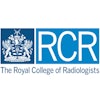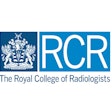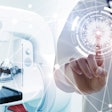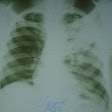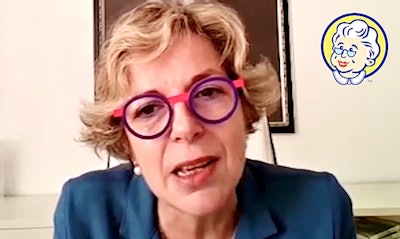
With Albania on track to join the European Union by 2030, the country faces a decisive decade of reform -- particularly in the healthcare sector. In an exclusive interview with AuntMinnieEurope, Albania’s newly appointed Minister of Health and Social Welfare, Prof. Evis Sala, an academic radiologist known internationally for her work in oncologic imaging, outlined her vision for harnessing AI and digital imaging to modernize patient care and strengthen the national health system.
“It was only after I accepted the position that I realized I had been missing the next challenge in my life. It may sound strange, but I thrive on challenges, big or small. This is definitely the biggest that I have taken on so far,” she noted. “I never thought I would be able to influence the health of a country, but I think my impact in this role could be greater than in any of my previous positions.”
She pointed to how the next four years will be crucial for integrating the Albanian health system into the EU health system, and her expertise in imaging and oncology will be invaluable. Among the areas set for transformation, medical imaging stands out as a key enabler of better diagnosis, prevention, and patient outcomes.
Prof. Evis Sala discusses her passion for healthcare policy, beginning with a plan to establish a national diagnostics program. Videos produced by Christof.G.Pelz | GRAFIFANT Creation | www.grafifant.at | 2025.
Her first major project will be to create a national diagnostics program that links primary care with secondary and tertiary care. “This project will be empowered by digital technology and AI. Experience gained, having trained through the digital imaging revolution, and practised alongside the AI transformation of radiology until only a month ago, will help me make this project a priority and a success,” Sala said.
Beyond radiology, her broader career in healthcare has equipped her well for her new role, she believes. After graduating from medical school in Albania, she trained and worked at Cambridge University Hospital and later worked at the Memorial Sloan Kettering Cancer Center in New York. In both institutions, she deepened her understanding of the cancer ecosystem -- from genomics and novel therapies to multidisciplinary care coordination.
These experiences prepared her to lead one of the largest radiology departments in Rome, Fondazione Policlinico Universitario Agostino Gemelli IRCCS, where she further advanced her expertise in cancer management and imaging innovation. She was also director of the Radiology Training Program at Università Cattolica del Sacro Cuore.
“In Rome, I learnt another set of skills that covered managing patients from diagnosis to treatment, in this case, radiotherapy. This gave me an overview of imaging ecosystems which all thrive on innovation,” noted Sala, whose special interests include the use of AI in cancer treatment response assessment.
She firmly believes that imaging lies at the heart of digital transformation and AI innovation in healthcare, and that radiologists are central to the evolution of precision medicine and integrated care.
Enjoying the moment: Sala says she has never had so much energy in her life.
“We need to think of how we can have an impact on patient care in a more meaningful way. We always think that AI will impact each single step, but we need to have a bigger overview,” she said. “Unless we impact every single part of the patient pathway from start to end, we aren’t going to change the outcome for the patient.”
“It’s no good being fabulous at making the diagnosis with AI, unless we link it all together, so that we don’t get a delay in the flow, meaning that treatment isn’t delivered on time,” she added. “We have to put AI in the whole patient pathway and look at it from an ecosystem perspective rather than as individual steps.”
For now, Sala is adapting from clinical and academic life to the demands of national policymaking. She says she has been deeply grateful for the moral support of her colleagues in Rome, Cambridge, and New York -- many of whom were both surprised and thrilled by her appointment. Their encouragement, she adds, has reassured her that this new chapter is the right one.
“Every single day, I have increasingly more energy. I see things that need changing, that need improvement, and feel driven to do it, which makes this a really interesting job,” she noted.
Being a radiologist remains a defining part of Sala's identity, and she has no intention of leaving it behind.
“Radiology is fabulous,” she emphasized. “Our role has evolved over the years from being a radiologist to being a diagnostician. Hopefully, in my lifetime, we will be the integrators as well.”
Although she may never return to full-time clinical work, she admits she still loves the creativity and constant innovation that come with running an imaging department.
“Whatever I do in the future, it will definitely involve some radiology. When you love something, you somehow keep hold of it,” she said.
Editor's Note: Part two of our interview with Prof. Sala will follow next week. It will focus on her recent commentary -- written jointly with Prof. Mathias Goyen before her appointment in AIbania -- about their belief that AI will lead to the merger of radiology and pathology.


